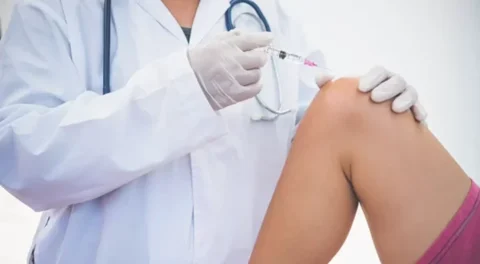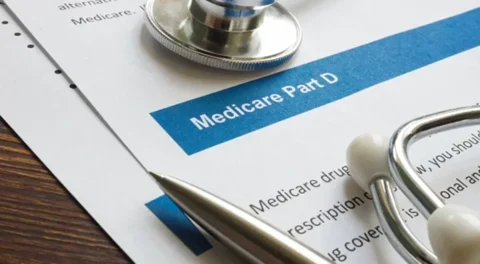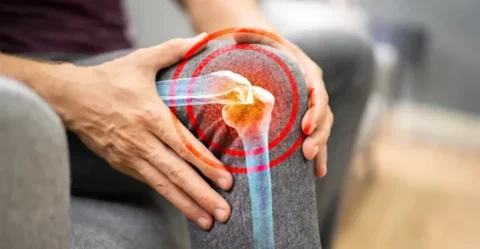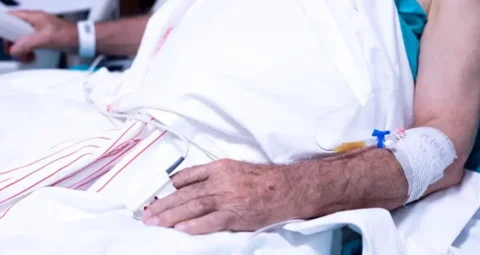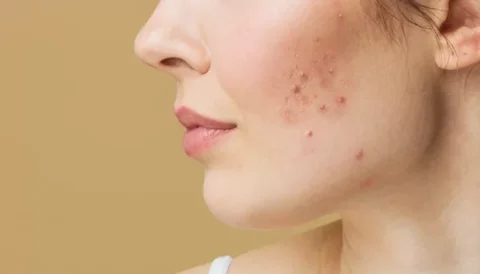Polycystic ovary syndrome (or PCOS) is a hormonal disorder that causes women to experience a range of symptoms like irregular periods and unwanted hair growth in their face and body. However, some patients also experience thinning hair on their scalp. Luckily, there have been studies on minimally invasive ways to stop PCOS-related hair loss – like those on PRP therapy.
So is PRP therapy an effective treatment for hair loss related to PCOS? Yes, PRP therapy is a useful medical treatment for hair regrowth because it uses platelet-rich plasma derived from the patient to trigger and maintain natural hair growth in the scalp. It may also be combined with other hair loss treatments to produce even better and long-lasting hair restoration results.
PCOS and Hair Loss: How They’re Related
Losing a few strands of hair every day is normal, but hundreds of hair strands falling out might be a serious sign of hair loss. While most cases of thinning hair don’t cause health complications, they can be a source of distress and embarrassment especially for female patients. Before treating female pattern hair loss, it’s important to figure out its cause first.
Polycystic ovary syndrome or PCOS is a health condition that affects women in the United States, especially their fertility, as it disrupts the hormonal balance of female patients and makes it harder for them to get pregnant.
Aside from its negative effects on fertility, PCOS can also manifest in different ways – irregular periods, hair growth, acne, changes in skin color, episodic headaches, and even female pattern hair loss.
Why PCOS Results in Hair Loss
Unlike what most people think, the female body also produces male hormones called androgens. They’re responsible for jumpstarting puberty and stimulating hair growth in different parts of the body like the pubic area, underarms, and more.
When a patient has PCOS, there’s a hormonal imbalance in their body that causes excessive production of androgen. With overly high androgen levels in the body, the patient undergoes virilization, a condition in which women develop certain masculine traits like hair growth patterns similar to men.
As men are more prone to hair loss than women, the extra androgen produced can cause the hair near the front of the scalp to start thinning. This condition is known as female pattern hair loss or androgenic alopecia.
The high levels of testosterone (the most common androgen) in the body are converted into dihydrotestosterone (DHT), a hormone that interferes with the normal hair growth cycle. Increased DHT in the body makes it easy for hair to fall out and difficult to grow back.
Common Symptoms of PCOS-Related Hair Loss
Before knowing how to stop female pattern hair loss caused by PCOS, it’s essential to recognize its common symptoms first including:
- Thinning Hair – One of the first observable symptoms of PCOS is hair loss. The hair follicular unit starts shrinking, producing shafts that are thinner than normal.
- Widening Hair Partitions – PCOS causes severe hair loss in a short time, making the hair partition a lot more noticeable and the scalp more visible.
- Hair Loss in Patches – PCOS hair loss is a result of high testosterone levels, so it’s normal for female patients to find patches of bald spots in different parts of their scalp.
- Balding Spot at the Crown – The crown region of the scalp experiences acute hair loss that leads to localized balding and patterns of hair loss in the area.
- Partial Balding – If left untreated, PCOS hair loss may lead to partial balding that’s visible to others.
Is PCOS Hair Loss Reversible?
If you’re suffering from PCOS hair loss, don’t stress yourself out because it only makes the hair fall worse. There are a few hair loss treatment options to reverse the female pattern hair loss caused by PCOS.
Following a healthy diet and an exercise routine helps balance the hormones in the body. Patients may also consult their doctor to keep an eye on the androgen levels or ask about the recommended hair loss treatment options. It’s important to remember that early diagnosis and treatment of PCOS hair loss is the key to preventing balding and promoting hair regrowth.
Treating PCOS Hair Loss with PRP Therapy
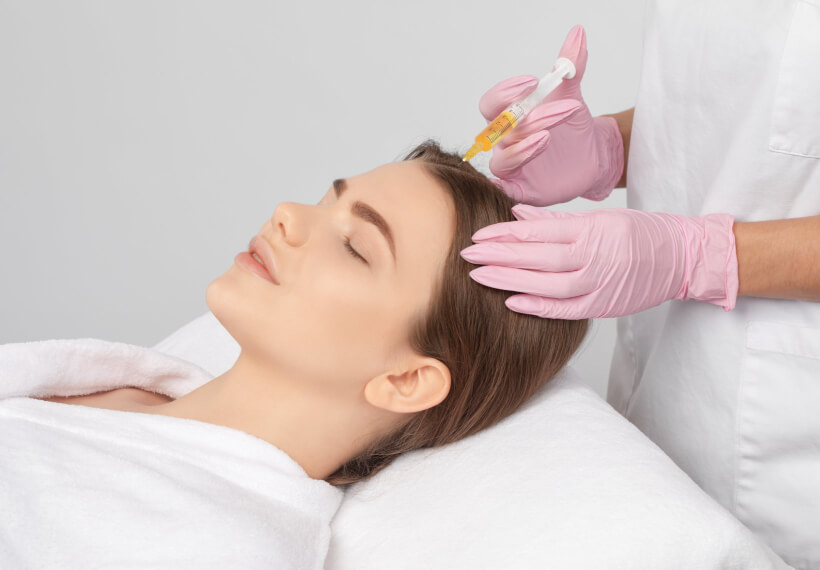
Platelet-rich plasma therapy (or PRP therapy) is a popular regenerative treatment used for different procedures like joint injury treatments and skin rejuvenation. Because of its low-risk and excellent results, PRP therapy is also considered an effective treatment for hair regrowth.
Here’s everything you need to know about this procedure:
How It Works
Platelet-rich plasma therapy is a 3-step procedure that involves drawing a blood sample from the patient, processing it through the centrifuge to separate the platelet-rich plasma layer, and injecting the PRP into the treatment areas of the scalp.
Platelet-rich plasma injections are packed with growth factors and proteins that boost tissue repair, increase endothelial growth factor, and stimulate collagen production. When injected into the balding parts of the head, PRP helps the hair follicles regrow thicker and longer hair shafts to reverse the effects of PCOS-related hair loss and androgenic alopecia in women.
How Effective It Is
There is lots of clinical evidence that focuses on the effectiveness of PRP therapy in hair regrowth. According to a 2019 review of different clinical studies on PRP therapy, most of the treatments performed on androgenetic alopecia patients resulted in reduced hair loss, increased hair growth density, increased hair count, and increased diameter of hairs.
Another review published in the International Journal of Women’s Dermatology also recognized PRP therapy as a “promising treatment” for female hair loss. However, they noted that the results that patients may experience depend on the injection techniques, session intervals, and specific preparations of the PRP therapy provider. It’s extremely important to find a highly experienced doctor to perform the treatment on you to achieve the best results.
Benefits of PRP Therapy for PCOS Hair Loss
If you’re struggling with thinning hair on the scalp because of PCOS, then PRP therapy might be a good type of female pattern hair loss treatment for you. Here are some of the best reasons to try this procedure:
- It’s a highly effective procedure with lots of scientific evidence and recommendations from industry experts.
- There’s little to no recovery time required. Most patients return to their daily activities on the same day as their appointment.
- Pain and discomfort are only minimal. Patients may feel slight pain as the needle pierces the skin, but the discomfort is tolerable. You can always talk to the provider about making the treatment a lot more comfortable for you.
- Each session is quick and easy. It only takes about an hour to complete the treatment, depending on the number of injections needed.
- It has fewer adverse effects than any other type of hair loss treatment. Since the PRP is derived from the patient’s own blood, there’s only an extremely small chance the body may react negatively to it.
Patient Qualifications
Like most minimally invasive treatments, PRP therapy for PCOS hair loss is safe for almost every patient who has good overall health.
Those who are still at the early stages of female hair loss may experience the best results with PRP therapy because it increases blood circulation in the scalp. Patients with balding spots on their head may still experience significant hair growth, but it’s difficult to restore the hair’s natural length and volume with PRP therapy alone.
Before undergoing the procedure, patients should consult a provider first to ensure that they’re qualified for the treatment. Female patients may be advised to skip this treatment and find a better alternative if they:
- Are taking blood-thinning medications
- Are heavy smokers
- Have a history of drug or alcohol abuse
- Have a low platelet count
- Are diagnosed with certain medical conditions like cancer, chronic liver disease, and more
Average Cost of Treatment
One injection of PRP usually costs around $400. But since the treatment for PCOS hair loss requires multiple platelet-rich plasma injections and treatment sessions, the price might range from $1500 to $3500 for the first 3 sessions. The exact cost of the procedure depends on factors like the clinic’s location, quality of equipment, additional nutritive components, and the provider’s experience.
Many insurance providers don’t cover the costs of PRP therapy for hair loss because it’s considered a cosmetic procedure, so patients have to shoulder the entire cost out of their pocket. However, it’s still best to talk to your insurance provider and double-check your insurance coverage.
How Long It Lasts
The results of PRP therapy usually start showing a few weeks after the treatment. The growth of new hairs and thickness of the hair shafts continue to improve until the final results are noticeable 3 to 6 months after the initial treatment.
But since PRP therapy isn’t a cure for PCOS itself, patients still need to receive additional PRP injections regularly to maintain their hair regrowth results. Another option is to get the appropriate treatment for PCOS and fight its many symptoms, including hair loss.
Possible Side Effects
Since PRP is derived from the patient’s blood components, there’s only a small risk of negative reactions to the solution. Here are other mild but common side effects of PRP therapy that PCOS hair loss patients should expect:
- Itching
- Headache
- Bleeding at the treated site
- Scalp tenderness
- Swelling and mild pain
These symptoms usually subside after a few days, but make sure to contact your provider or a medical professional if they worsen or persist.
5 Alternatives to PRP Therapy for PCOS Hair Loss
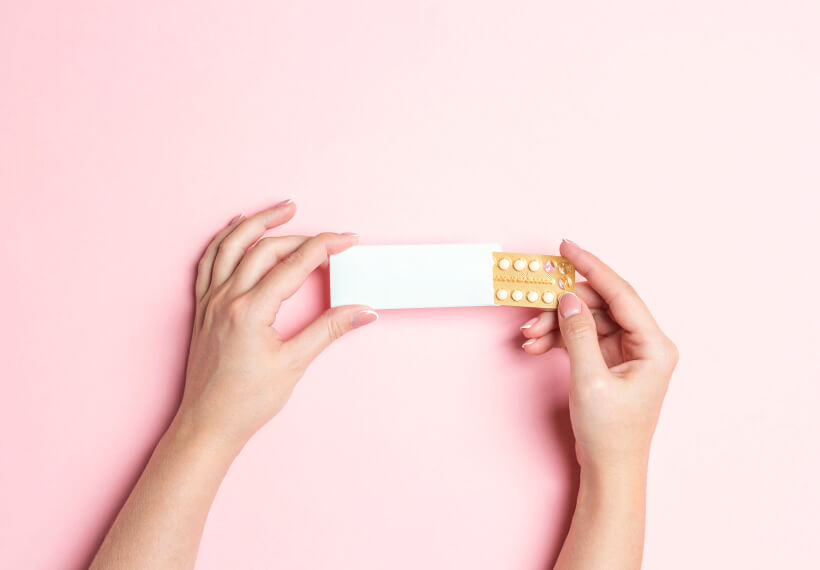
If the doctor advises against taking PRP therapy to treat PCOS-related hair loss, there are still other ways to reverse female pattern hair loss. PCOS hair loss is a result of hormonal imbalance, so hormone-regulating medications may help restore the thickness and length of the hair shafts on the scalp.
But before starting any kind of medication for androgenetic alopecia, it’s crucial to remember that patients might need to try a few drugs first to find the best one that works for them. Some people may also experience the best results by combining different medications or treatments, as long as it’s done or taken under the supervision of a medical professional.
1) Contraceptive Pills
Birth control pills effectively lower the androgen levels of females, which can help limit the growth of unwanted body hair and slow down hair loss on the scalp. Patients may also find relief from other PCOS symptoms like irregular periods and acne after taking oral contraceptives. Some doctors may also prescribe an anti-androgen medication along with oral contraceptives to help fight PCOS-related hair loss.
2) Minoxidil
Rogaine or minoxidil is an FDA-approved drug used for treating pattern baldness in women. It’s a topical medication that’s applied to the problem areas of the scalp to promote hair growth and restore its thick appearance. It takes a few months for minoxidil to regrow some of the hair, but it might be difficult to restore the hair to its former glory. Patients also have to continuously use the topical medication every day to maintain any kind of hair regrowth on the scalp.
3) Finasteride and Dutasteride
Dutasteride and finasteride are both approved by the U.S. Food and Drug Administration for treating male pattern baldness, but some doctors also prescribed them to women who are suffering from PCOS-related hair loss.
However, some patients might experience adverse effects while taking them, so make sure to consult a doctor first and see if the benefits outweigh the risks of the medication for you.
4) Biotin Supplements
Biotin is a water-soluble vitamin that stimulates hair follicle growth and keratin production. There isn’t much evidence proving that it specifically helps with PCOS-related hair loss, but it’s a useful ingredient found in many supplements for maintaining hair health. Taking biotin supplements for a few weeks may result in significant hair growth, so it’s still worth a try.
5) Hair Transplant
This surgical procedure involves implanting each follicular unit from the part of the scalp with a lot of hair into the balding spots. With this procedure, the patient needs to have enough donor sites to get the hair follicles from. It may cost up to $15,000 without a guarantee that it’ll work, so many patients choose other hair restoration treatments instead.
Find the Best Hair Regrowth Products at FACE Med Store
PRP therapy is an ideal treatment for PCOS-related hair loss because it’s low-risk yet highly effective. But if patients want hair restoration results that are noticeable after just a few weeks, it’s best to combine this procedure with other hair regrowth treatments and medications.
At FACE Med Store, we offer PEP Factor and other hair restoration products that enhance the effects of PRP therapy for hair loss. We also provide other kinds of medical products that may be paired with PRP therapy to help patients get their desired results safely and effectively. Contact us today to learn more about our products and best deals.

